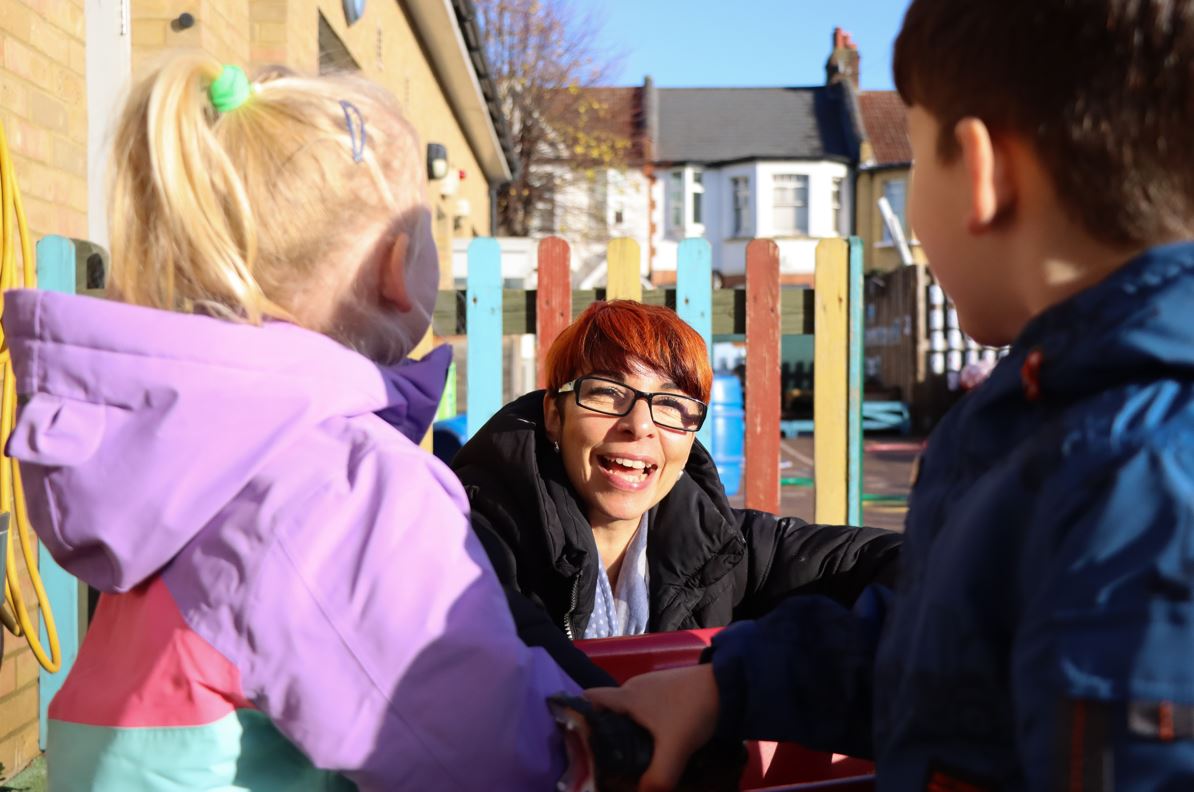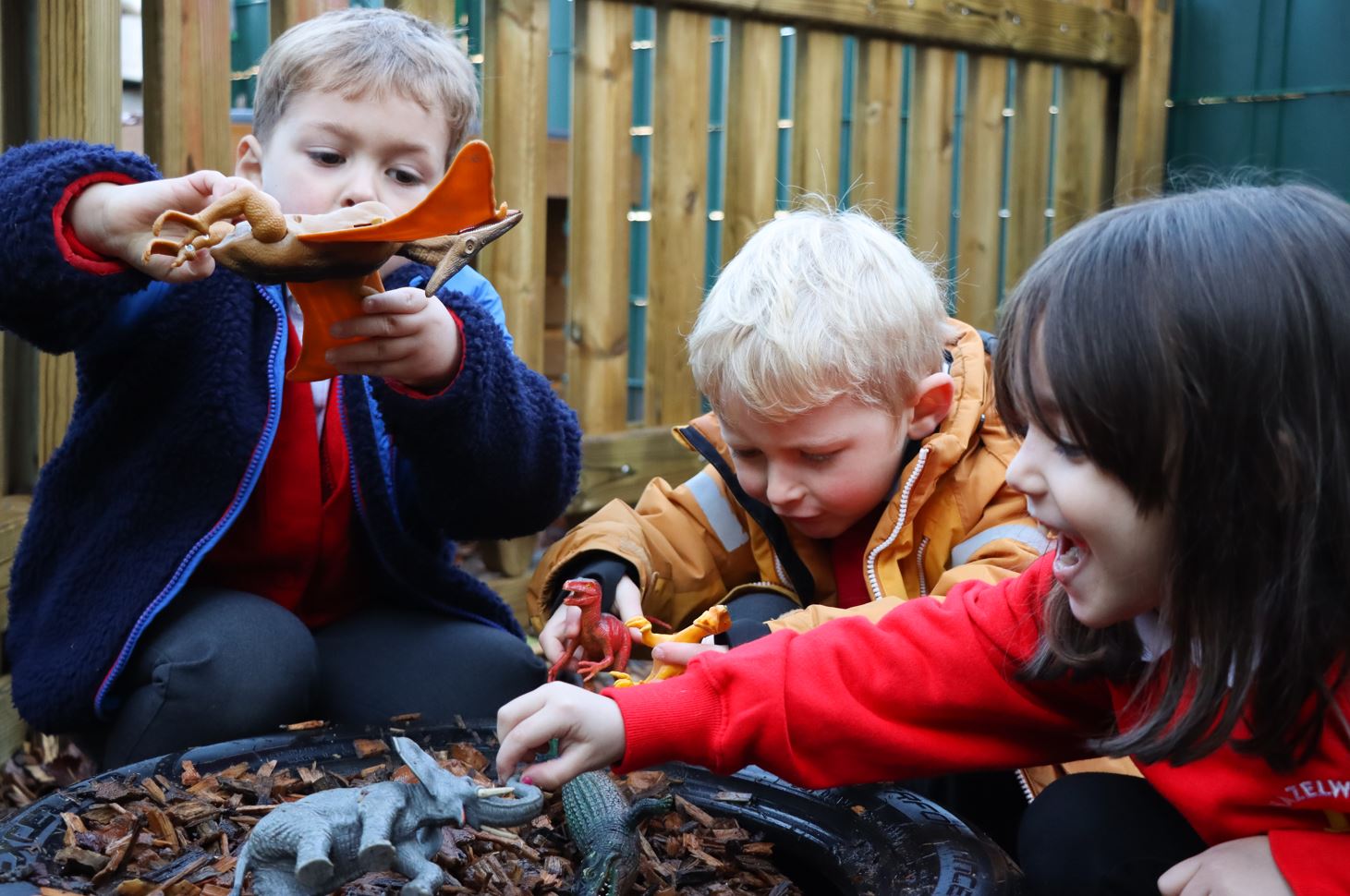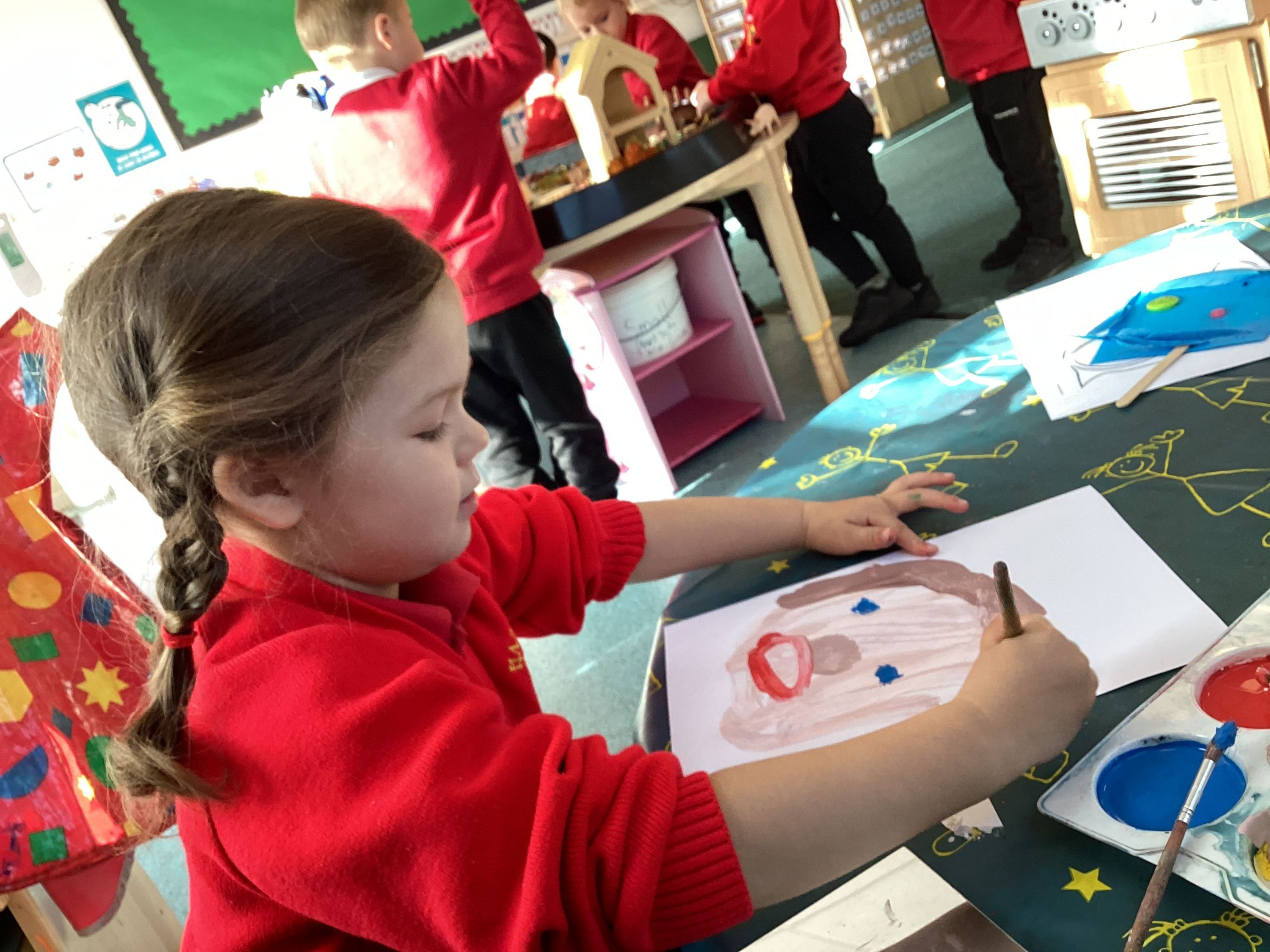Learning & Development
AT HAZELWOOD SCHOOLS, OUR EARLY YEARS FOUNDATION STAGE FOLLOWS THE EYFS LEARNING AND DEVELOPMENT REQUIREMENTS AS OUTLINED IN THE EARLY YEARS FOUNDATION STAGE (EYFS) STATUTORY FRAMEWORK (2021).
The EYFS Framework includes seven areas of learning and development that are equally important and inter-connected.
Three areas known as the prime areas are seen as particularly important for igniting curiosity and enthusiasm for learning, and for building children’s capacity to learn, form relationships and thrive.
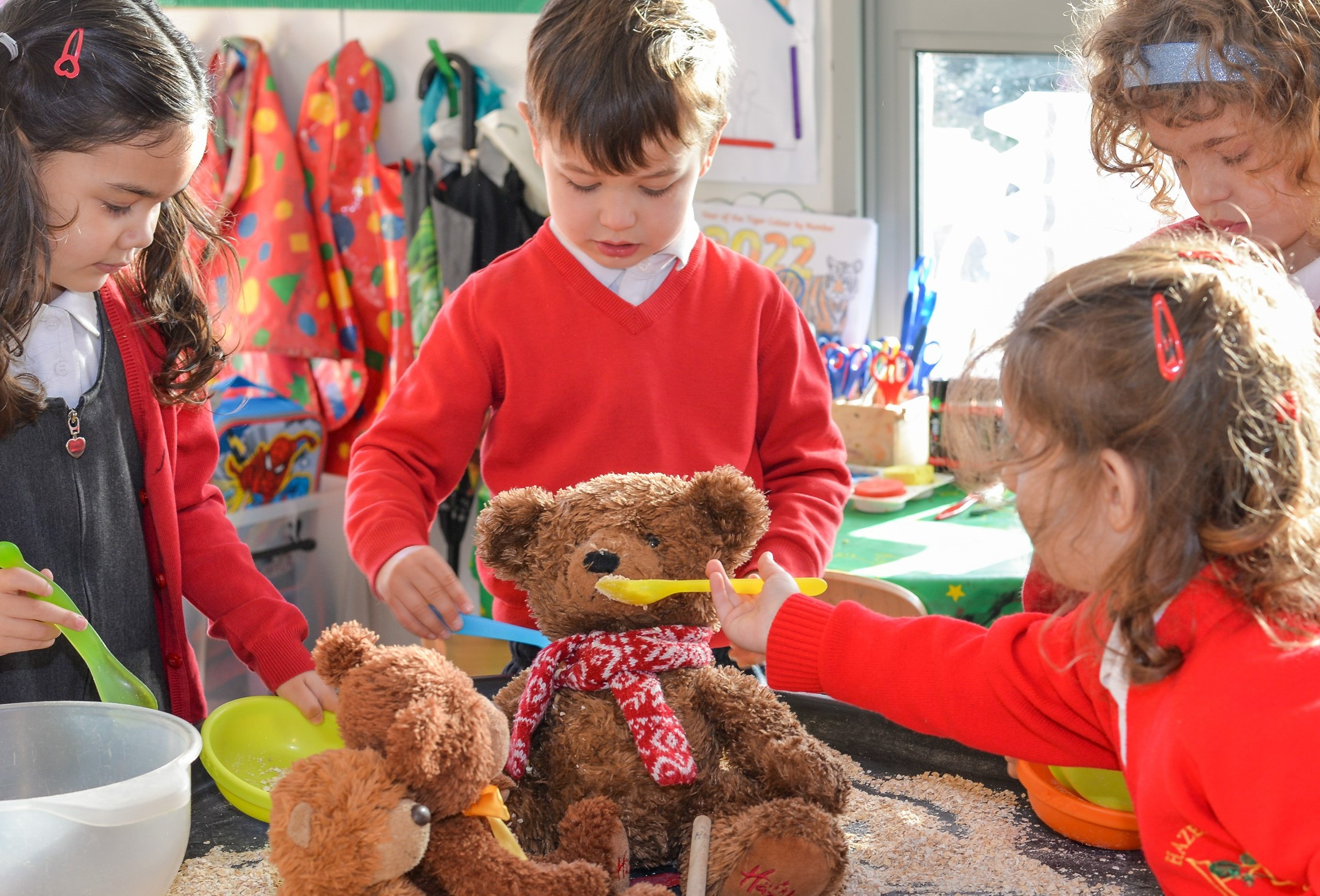
Prime areas
Communication and Language
In both Nursery and Reception there is a huge emphasis placed on the development of children’s communication and language skills and ensuring the learning environment is language rich. Adults are carefully placed in the learning environment to ensure children have access to a large number of quality conversations with adults and peers throughout the day. Children’s language is built effectively by interactions with adults that are interested in what they are doing and who echo back what they say with new added vocabulary. Children are provided with lots of opportunities to embed new language through a range of contexts such as role play, storytelling and rich conversations.
Personal, Social, Emotional Development (PSED)
Our children learn how to understand their own feelings and those of others through the supportive and warm relationships they have with the adults around them. They are supported in managing their emotions and behaviour and learn how to use a growth mindset when they encounter challenges. Our curriculum is designed with ample opportunities for our children to learn how to look after their bodies and manage personal needs independently. Our children have lots of time to play and this enables them space and time to learn how to make good friendships, co-operate and, with the support of others, resolve any issues that arise in the moment.
Physical Development
In both Nursery and Reception children 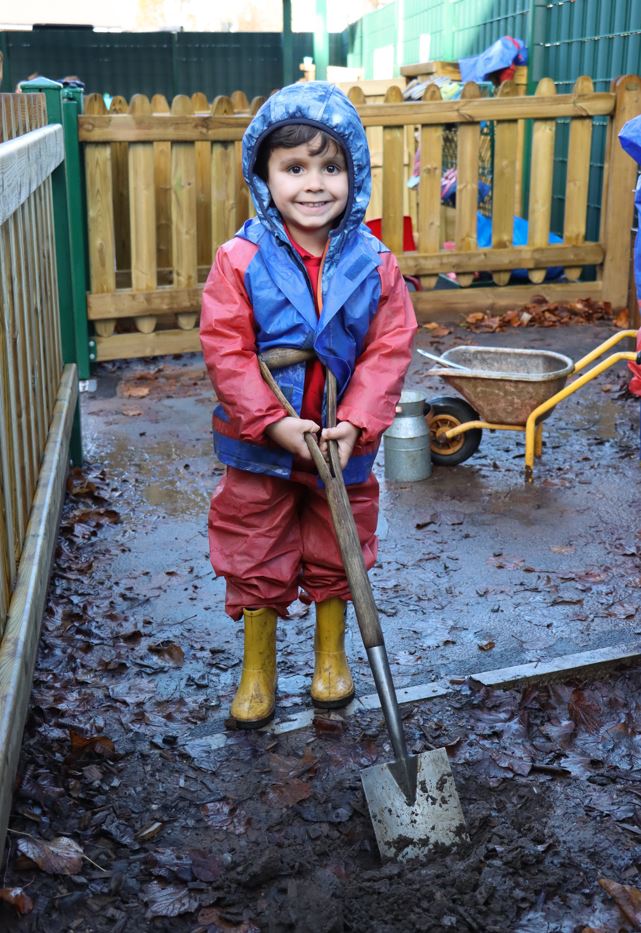
Children develop their hand eye co-ordination and precision skills through exploration of areas such as funky fingers, small world, construction and creative areas. Our children practise using lots of different small tools to develop hand strength, control and confidence which impacts on their writing later on.
Specific Areas
Literacy
Our curriculum is designed to develop a life-long 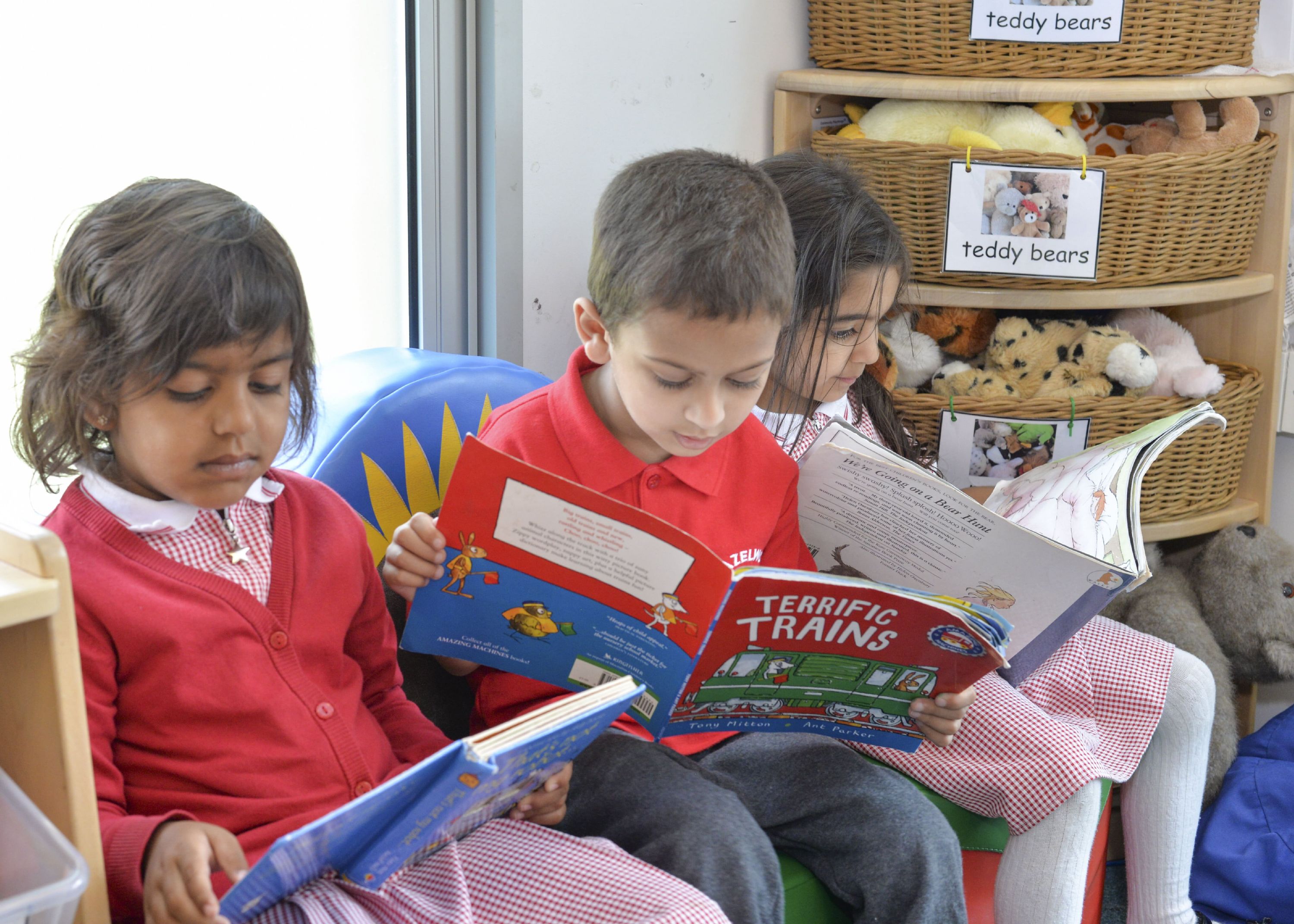 love of reading. Our children hear a range of stories, nursery rhymes and songs each week and our curriculum is centred around weekly key texts. Our children develop language comprehension through lots of book talk and discussions about the world around them. All children have access to inviting book areas to enable them to independently spend time looking at books.
love of reading. Our children hear a range of stories, nursery rhymes and songs each week and our curriculum is centred around weekly key texts. Our children develop language comprehension through lots of book talk and discussions about the world around them. All children have access to inviting book areas to enable them to independently spend time looking at books.
Our children are taught word reading through phonics lessons. In Nursery, this is regular Foundation for Phonics sessions which focus on nursery rhymes, sound discrimination, rhyme, alliteration and oral blending. In Reception, children have daily phonics lessons which follow the Little Wandle Letters and Sounds Programme where children learn to decode words using their phonic knowledge.
Children have access to a range of resources to encourage mark making indoors and out, the children have an opportunity to write on a large scale with a range of textures, including whiteboards, with chalk and in sand. In Nursery, the focus is centred around the enjoyment of mark making and giving meaning to the marks they make. The aim is for Nursery children to be able to write their names by the time the move to Reception. In Reception, children learn to apply their phonics learning to their writing to enable them to write simple captions and sentences.
Maths
Our children’s Mathematical ideas are explored thr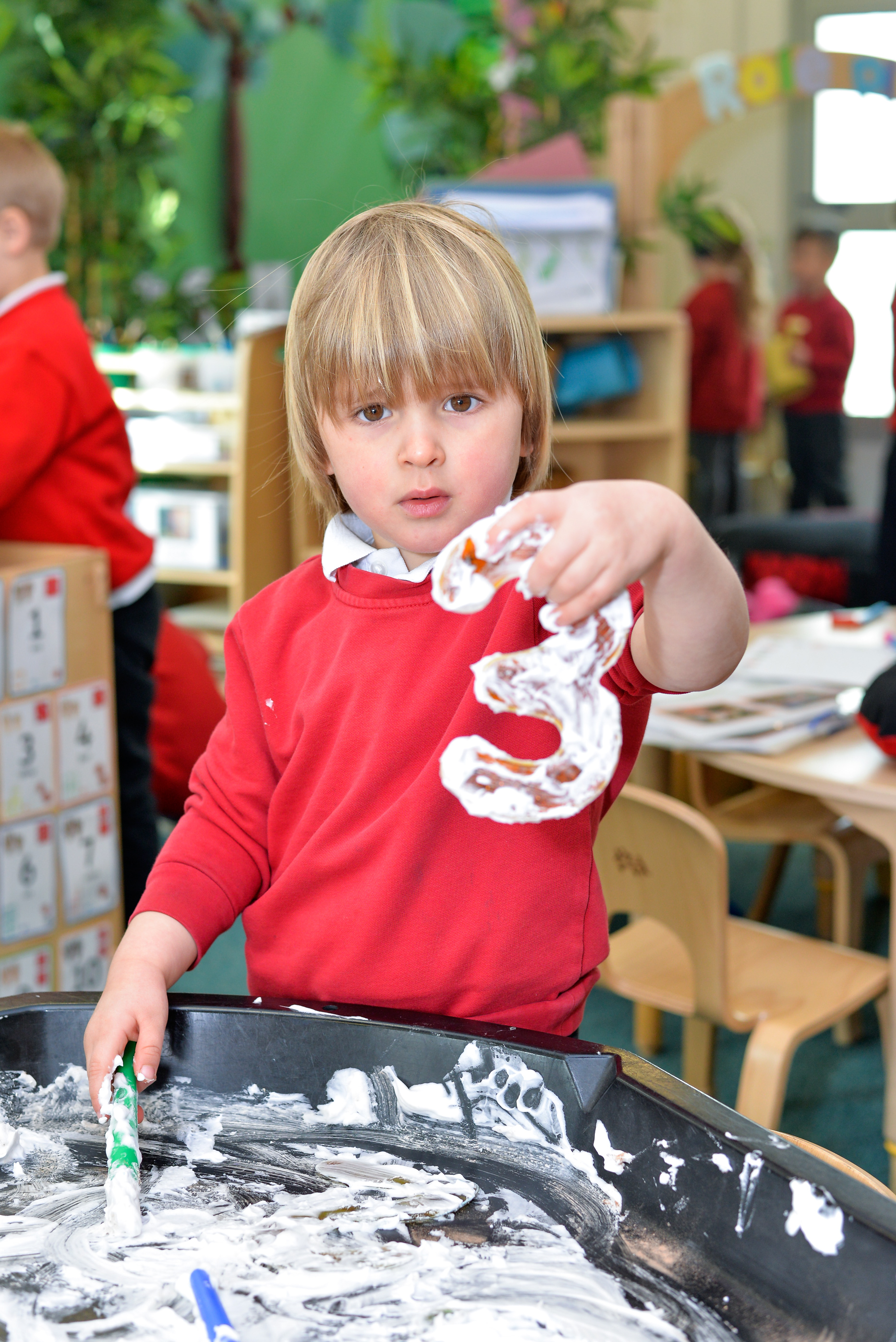 ough stories and are focused around a child’s contextual understanding and real-life experiences.
ough stories and are focused around a child’s contextual understanding and real-life experiences.
Adult focus sessions aim to deepen understanding and build number sense of smaller numbers. Children are encouraged to look for patterns and relationships, spot connections, ‘have a go’ and talk about what they notice. Our planning is guided by the White Rose Scheme of work.
Our learning environment provides lots of opportunities for our children to build and apply their understanding of number through the use of a range of manipulatives. It also enables them to explore, investigate and develop their understanding of shape, space and measure as well as problem solving.
Understanding the World
Our curriculum is designed to enable children to make sense of their physical world and their community. Through the exploration of key texts, our children develop an understanding of our diverse world, seeing themselves - as well as others - in the books they read.
Through visits to places in our local community, such as the local library and meeting important members of our community, such as firefighters and doctors, our children develop important knowledge and new vocabulary.
Our children in reception have termly forest school sessions. Forest School is about exploring and experiencing the natural world through practical activities. The children go out in all weathers, all year round, exploring and learning from the four seasons and environment changes.
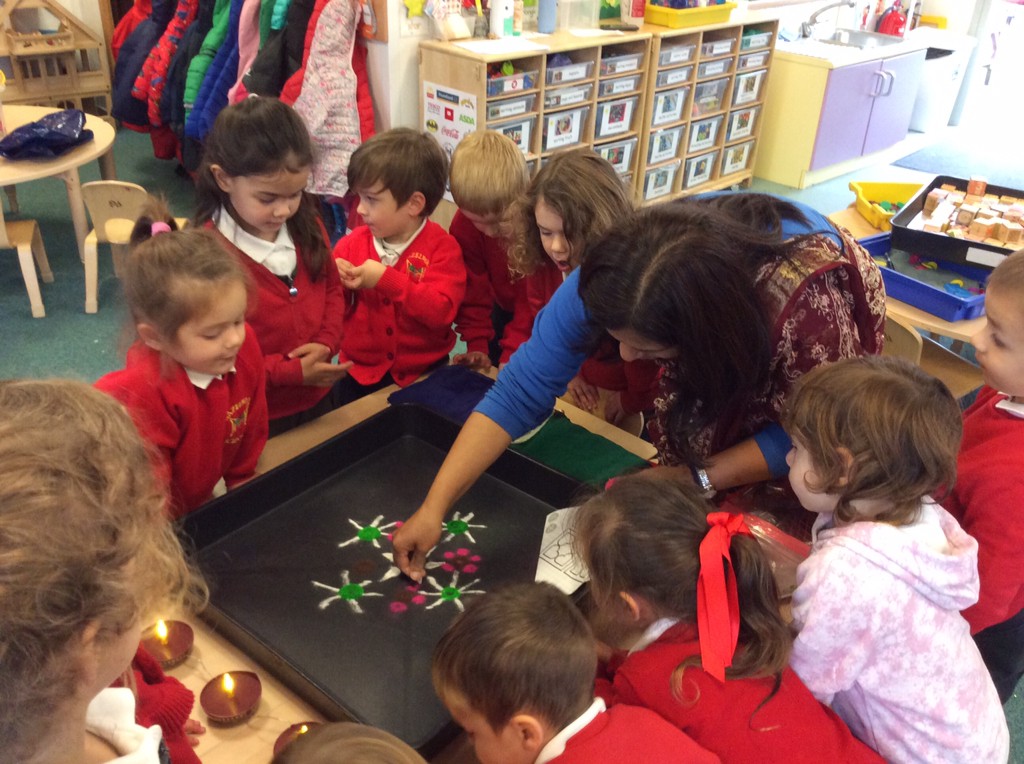
Expressive Arts and Design
Our children have regular opportunities to explore and play with a wide range of media and materials. They are encouraged to develop their own ideas and talk about what they make, design and paint.
In both Nursery and Reception, children are introduced to a range of artists and designers such as Kandinsky and Andy Goldsworthy. Adults model skills and how to use a range of tools for activities such as painting, drawing, cutting, sewing, cooking at much more!
Singing is important in the Early Years; you will hear children singing most days. Whether it be though singing routine songs or joining together to sing a new song they have worked hard to learn as a class, our children are always singing! Children have free access to musical instruments which they explore and play. Children explore sounds and make their own music. In Reception, our children have a weekly music lesson where they develop their listening and appraising, singing, play and performing skills with our music specialist.
At the end of the EYFS, in Reception, all children are assessed against 17 Early Learning Goals

